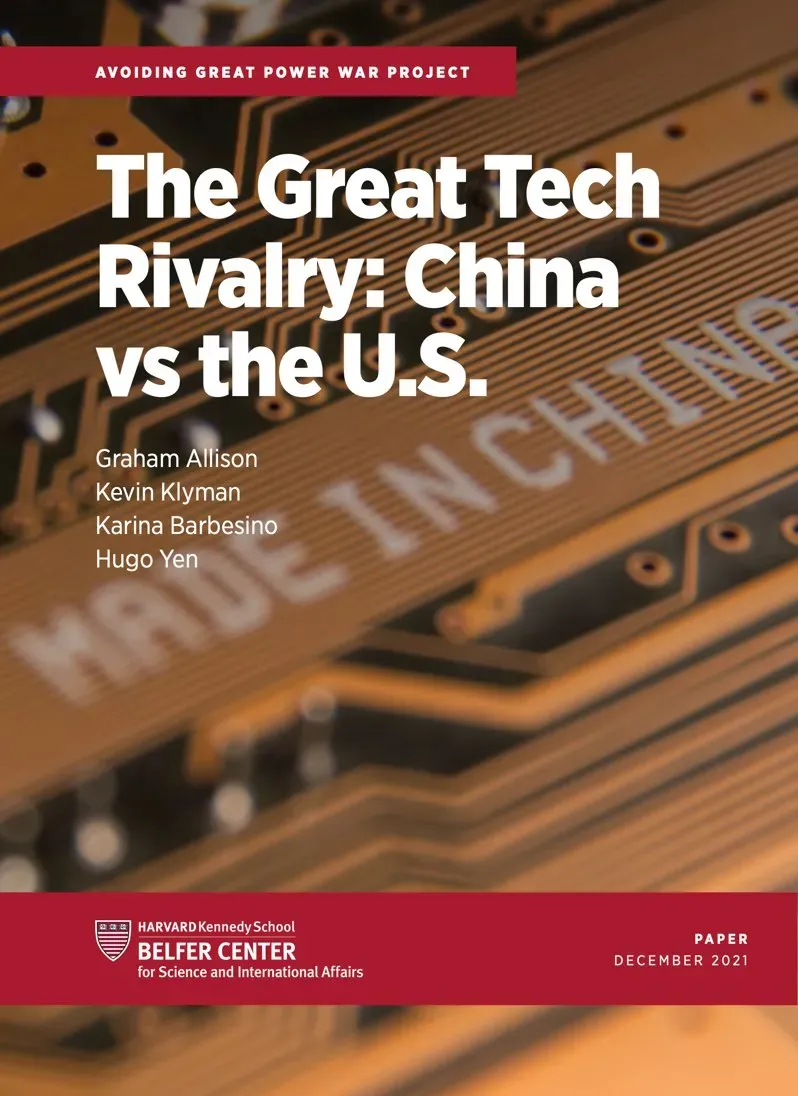On the great technology rivalry
China has developed further and faster on more dimensions than any nation in history. All this happened so quickly that many have not yet had time to be astonished.

China has developed further and faster on more dimensions than any nation in history. All this happened so quickly that many have not yet had time to be astonished. Many people I speak to believe that China is a low-cost manufacturing site for multinational companies—and somehow is the manufacturing workshop for the world. China's rapid rise challenges countries with leadership claims or those that believe they still have it.
In this report, Professor Graham Allision and others document what happened in the technology competition of superpowers and look into artificial intelligence, 5G, quantum information science, semiconductors, biotechnology, green energy and the main drivers of the technology competition.
The report is insightful and highly recommendable. I am working in the information and communication technology sector, of which more than twelve years were in an American company and almost eight years in a Chinese company. I am thankful that both companies provided me with the opportunities to grow my expertise in advanced technologies and see some of Graham's findings first hand.
The post-World War II world was based on international institutions: UN, WHO, WTO, OECD, IMF and World Bank. The world of the 21st century is based on technological supremacy. As a European, I wonder if Europe's future role is to only sit in the spectator box or emancipate itself to be on par and independent towards the upcoming change. As a parent, I wonder how my children's future world will look like and what skills they will require to survive.
The climate crisis, for me, can only be solved if all advanced countries collaborate on technical advancements and help countries that are still having opportunities to grow. We cannot expect individuals to sacrifice their status or not try hard to achieve one.
Having competition is good. Boycotts and sanctions are of no use at all. The superpowers have become far too powerful in the meantime. It might have worked 25 years ago. Back then, one still had certain leverage or influence. Today's outcry is nothing more than self-satisfaction on the part of Western politicians. Our world leaders need to understand that what is suitable for one is not necessarily good for the other or the rest of the world. To think now that you can change it with a few words and sanctions—that's nonsense.
If nations want to lead and influence, they must be active and present in the region. They need to be a factor. To be a factor, you need to have technological advantages. But how meaningful are technical advantages if it is not for the benefit of humanity? The world is deeply entangled with each other. Removal of entanglement is unrealistic or very painful. Global collaboration can only solve today's problems like the Coronavirus pandemic or the climate crisis. Politicians need to understand that the world requires collaboration and pragmatism—not humorous parols or personal vanity.
